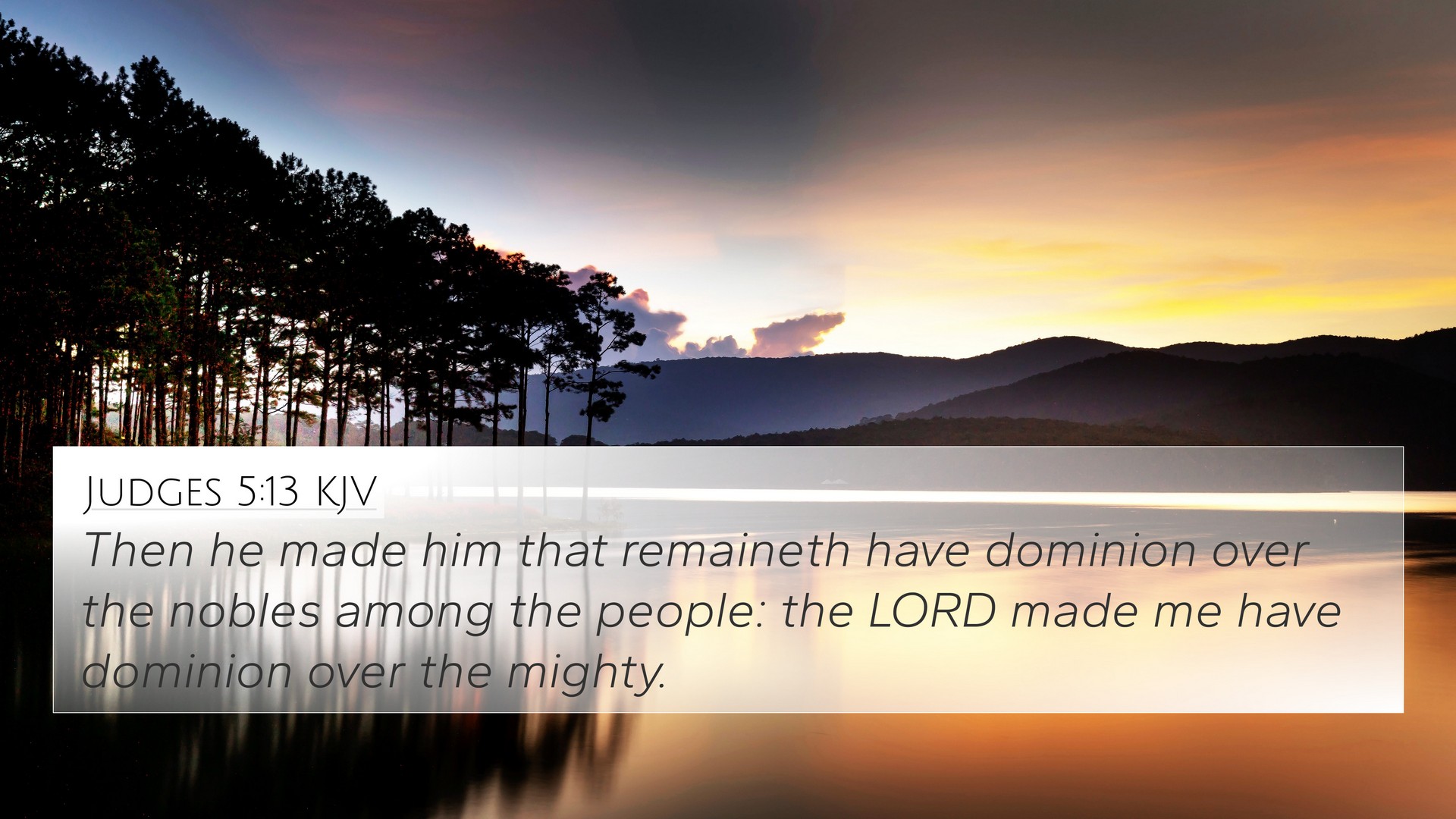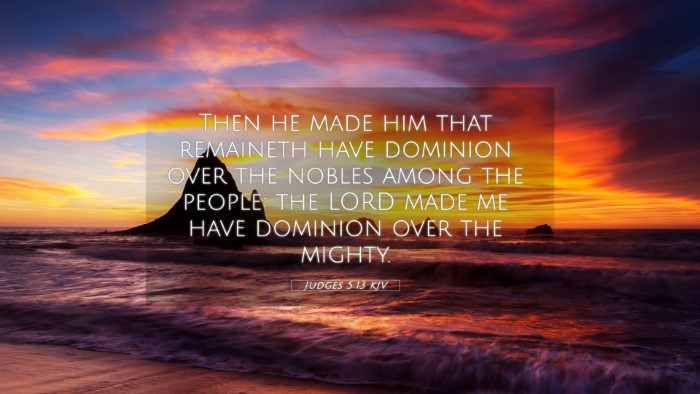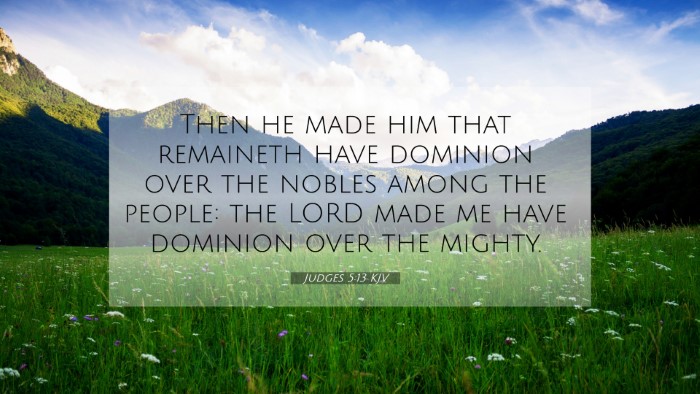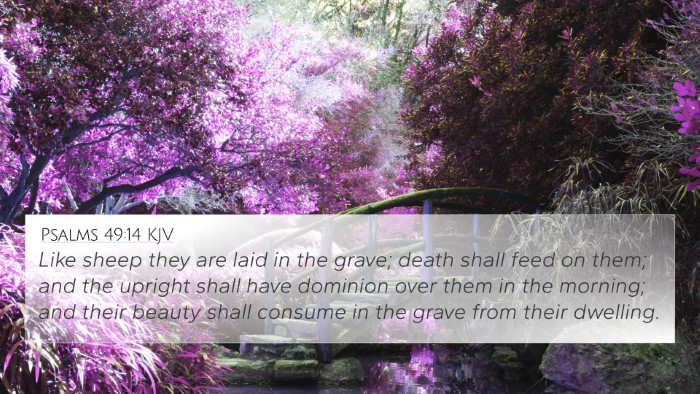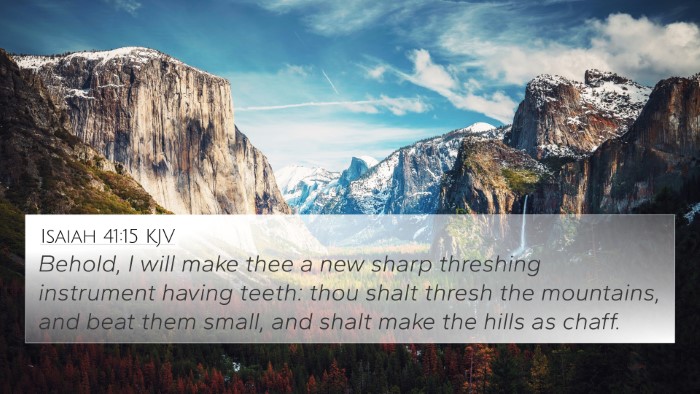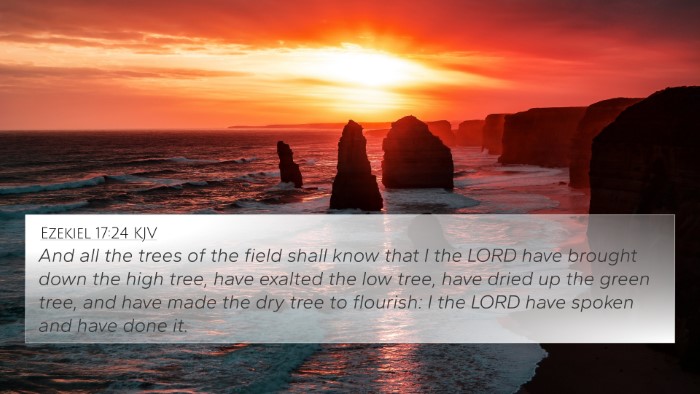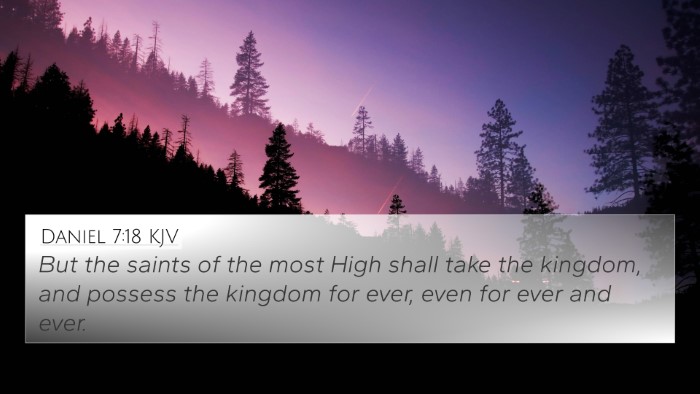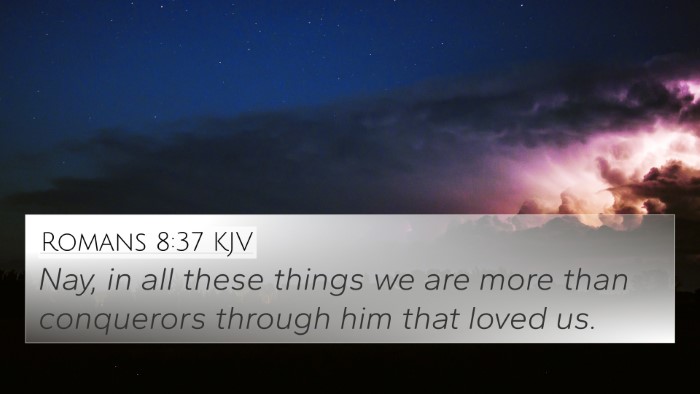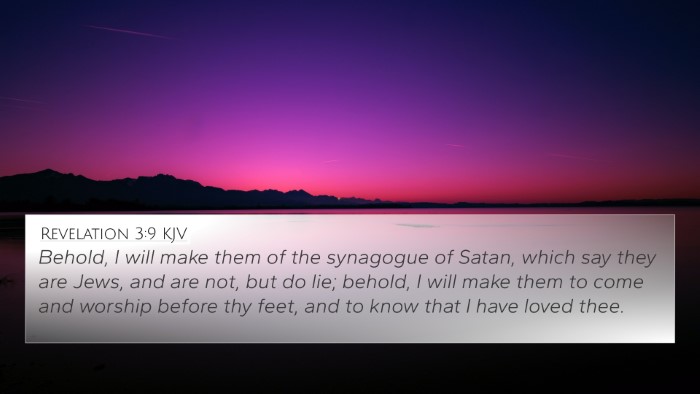Understanding Judges 5:13
Judges 5:13 states: "Then down marched the remnant of the nobles; the people of the Lord marched down against the mighty." This verse is part of the Song of Deborah and Barak, celebrating the victory of Israel over the Canaanite oppressors. It highlights key themes of God’s deliverance, the bravery of leaders, and the unity of God's people.
Commentary Insights
This verse reflects a crucial moment in Israel's history, emphasizing the roles of the nobles and the overall people in God's plan. The following points summarize insights from prominent public domain commentaries:
- Matthew Henry: Henry indicates that the 'remnant of the nobles' signifies those who remained loyal to God amidst widespread apostasy. Their courage in confronting adversity demonstrates the power of divine support in battles against evil.
- Albert Barnes: Barnes provides context, noting that the victory was not merely a human endeavor but was influenced by the willing spirits of those who followed God’s guidance. The unity among the forces recalls how collective action brings about divine fulfilment.
- Adam Clarke: Clarke emphasizes that the battle described transcended physical combat, symbolizing a spiritual struggle where the mightiest forces of evil were challenged by faithful obedience and God’s providential hand.
Thematic Connections
The themes of Judges 5:13 resonate throughout the Bible, inviting a deeper analysis and cross-referencing with other scriptures. Here are key thematic connections:
- Divine Deliverance: Exodus 14:30 - "Thus the Lord saved Israel that day from the hand of the Egyptians…" This shows God's continuous intervention in Israel's challenges.
- Leadership and Bravery: Psalms 68:27 - Describes the leaders of Israel going forth in bravery and unity, reflective of the nobles mentioned in Judges.
- Faithful Remnants: Isaiah 10:20 - "And it shall come to pass in that day that the remnant of Israel…" illustrates a similar faithfulness that leads to deliverance.
- God’s Sovereignty in Battle: 1 Samuel 17:47 - "For the battle is the Lord's…" highlights that ultimately, victories belong to God, not just human effort.
- Unity in Purpose: Philippians 1:27 - "Only let your conduct be worthy of the gospel of Christ…" calls for unity and collective action among believers.
- God’s Call to Arms: Joel 3:9-10 - This verse emphasizes God's command to prepare for war, showcasing divine backing in conflict.
- The Call to Action: Matthew 28:19-20 - The Great Commission aligns with the idea of following God’s directive with courage and purpose.
- God's Faithfulness to Israel: Deuteronomy 20:4 - "For the Lord your God is He who goes with you, to fight for you against your enemies…" reiterates God's involvement in battles.
- Courage in Adversity: 2 Timothy 1:7 - "For God has not given us a spirit of fear, but of power and of love and of a sound mind," urges believers to act bravely.
- The Role of Prayer: James 5:16 - "The effective, fervent prayer of a righteous man avails much," reflecting on the spiritual foundation accompanying physical battles.
Importance of Cross-Referencing
Cross-referencing biblical texts enhances the understanding of theological principles and historical contexts. Effective tools for Bible cross-referencing include:
- Bible Concordance: A comprehensive tool to identify words and themes, helping to locate verses that connect.
- Bible Cross-Reference Guide: Useful for linking scriptures that relate thematically or contextually.
- Bible Chain References: A methodical system that allows for tracing themes through interrelated scriptures.
- Cross-Reference Bible Study Materials: Resources designed to facilitate deeper engagement with connected verses.
- Comparative Bible Verse Analysis Tools: Instruments for drawing parallels between verses for comprehensive understanding.
- How to Use Bible Cross-References: Guides available for effectively locating and studying themes across the Bible.
Conclusion
Judges 5:13 serves as a profound reminder of how God calls people to stand together in faith, facing the might of opposition. The insights provided by public domain commentaries enrich our understanding, showing that God’s plans unfold through faithful people. By engaging in inter-Biblical dialogue through cross-referencing, believers can uncover deeper truths that connect the Old and New Testaments, enhancing their spiritual journeys.
